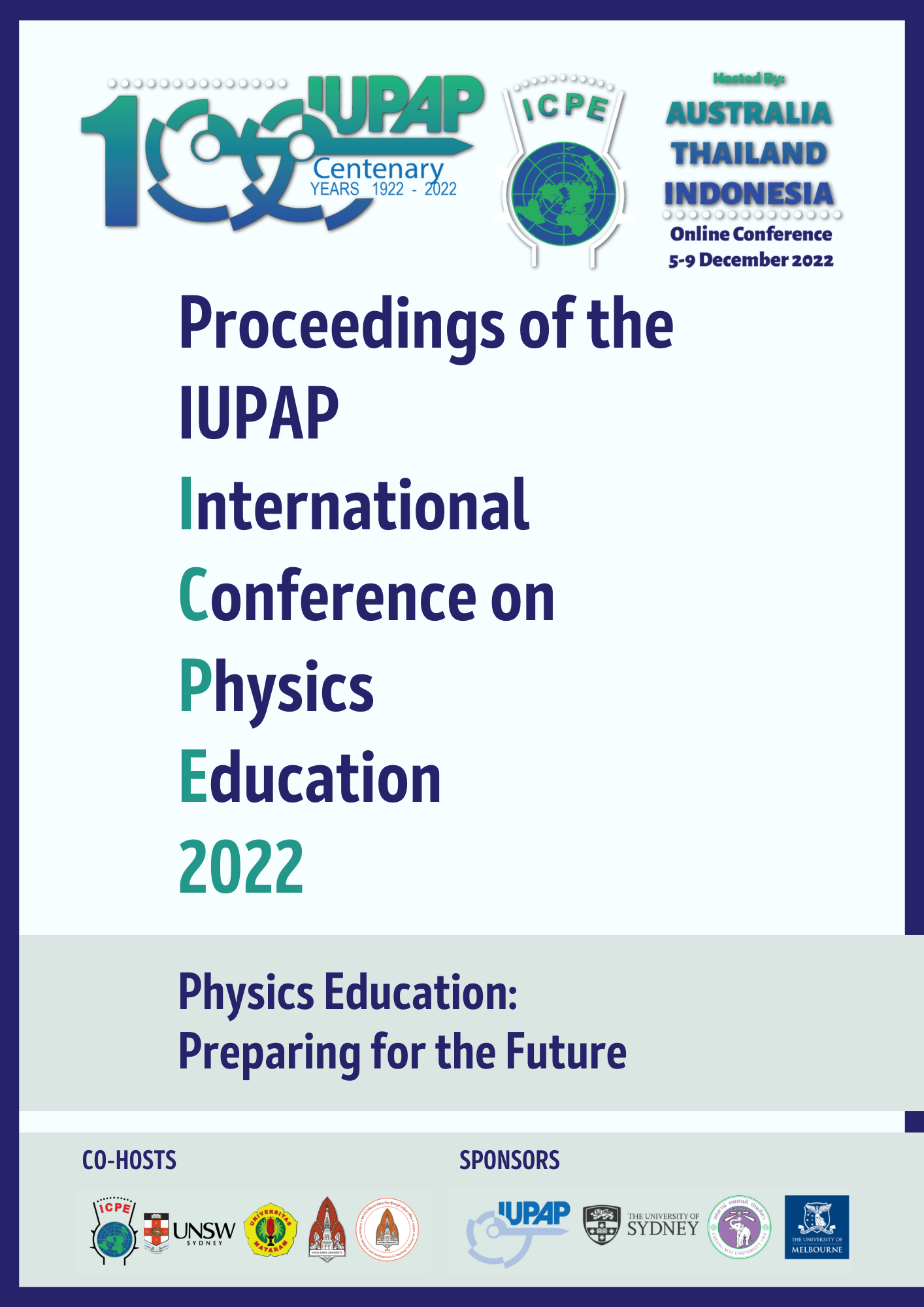Gender issues in science for physics teacher educators: The case of Antonia Maury and her star catalog
Keywords:
Gender Issues, Nature of Science, Science teacher educatorsAbstract
In the initial and continuous training of science teachers, the importance of addressing issues associated with the Nature of Science (NOS) is recognized. However, these issues are not usually incorporated into classrooms. This is often because Science teacher educators do not consider it necessary to make explicit the content of NOS, and the choices they make about these are influenced by beliefs, philosophical and socio-cultural issues (Wan et al., 2013). Particularly, in recent years, and thanks to the advance of gender studies in science and technology (Blazquez Graf & Chapa Romero, 2018), androcentric biases, among others, that subordinate and/or exclude people from production, education, and formation in science, due to their identity and/or sexual orientation, race, social class, age, etc., have been unveiled. In this sense, what is sought with the inclusion of gender issues in teacher training is to understand and transform practices and discourses of science teacher educators and future science teachers, with the commitment to promote and advocate for scientific and technological education for all.
The aim of this communication is to develop a proposal for Physics teacher educators, using the contributions of History, Philosophy and Sociology of Science in Teaching, with a socio-political perspective (Moura, 2021) and one that contributes to addressing gender issues in the initial and continuing teachers’ training. Through the analysis of the exemplary historical case of the astronomer Antonia C. Maury (1866-1952) on spectral classification, which is considered the basis for the construction of the H-R diagram and the development of Astrophysics, the division of scientific work in Astronomy is problematized. This review led to a scientific narrative (Adúriz-Bravo, 2014) to take to the classroom. The documentary analysis reviewed the stellar catalog published in the annals of the Harvard Observatory: Spectra of Bright stars (Maury & Pickering, 1897), which is one of the first publications in which the authorship of a woman is recognized, and some second-source historical texts (Sobel & Pacheco González, 2017; Vieira et al., 2021). The scientific narrative incorporates discussions on 1) the gender division of scientific work, 2) the lack of an "objective" criterion for accepting certain methodologies and observations 3) the role of spectrometry in Astrophysics, and 4) communication and popularization in science. Finally, we conclude that these types of narratives are susceptible to be analyzed and adapted by science teacher educators, broadening the images of science, and making explicit questions about the NOS and Technology in initial and continuing teacher training.
REFERENCES
Adúriz-Bravo, A. (2014). Teaching the Nature of Science with Scientific Narratives. Interchange, 45(3–4), 167–184. https://doi.org/10.1007/s10780-015-9229-7
Blazquez Graf, N., & Chapa Romero, A. C. (2018). Inclusión del análisis de género en la ciencia (U. N. A. de México (ed.); electrónic). Centro de Investigaciones Interdisciplinarias en Ciencias y Humanidades.
Maury, A. C., & Pickering, E. C. (1897). Spectra of Bright stars. Annals of the Astronomical Observatory of Harvard College., XXVIII(1), 37–72.
Moura, C. B. (2021). Para que história da ciência no ensino ? Algumas direções a partir de uma perspectiva sociopolítica. RBECM, 4(Edição especial), 1155–1178.
Sobel, D., & Pacheco Gonzáles, P. (2017). El Universo de cristal. La historia de las mujeres de Harvard que nos acercaron a las estrellas.
Vieira, P. C., Massoni, N. T., & Alves-Brito, A. (2021). O papel de Cecilia Payne na determinação da composição estelar. Revista Brasileira de Ensino de Física, 43. https://doi.org/10.1590/1806-9126-rbef-2021-0028
Wan, Z. H., Wong, S. L., Wei, B., & Zhan, Y. (2013). Focusing on the Classical or Contemporary? Chinese Science Teacher Educators’ Conceptions of Nature of Science Content to Be Taught to Pre-service Science Teachers. Research in Science Education, 43(6), 2541–2566. https://doi.org/10.1007/s11165-013-9372-z
Downloads
Published
Issue
Section
License
Authors who publish with the Proceedings of the International Conference on Physics Education 2022 agree to the following terms:
a) Authors retain copyright and grant the journal right of first publication with the work simultaneously licensed under a Creative Commons Attribution License (https://creativecommons.org/licenses/by/4.0/) that allows others to share the work with an acknowledgement of the work's authorship and initial publication in this journal.
b) Authors are able to enter into separate, additional contractual arrangements for the non-exclusive distribution of the journal's published version of the work (e.g., post it to an institutional repository or publish it in a book), with an acknowledgement of its initial publication in this journal.
c) Authors are permitted and encouraged to post their work online (e.g., in institutional repositories or on their website) prior to and during the submission process, as it can lead to productive exchanges, as well as earlier and greater citation of published work (See The Effect of Open Access - http://opcit.eprints.org/oacitation-biblio.html).
Privacy Statement The names and email addresses entered in the Proceedings of the International Conference on Physics Education 2022 site will be used exclusively for the stated purposes of this journal and will not be made available for any other purpose or to any other party.
